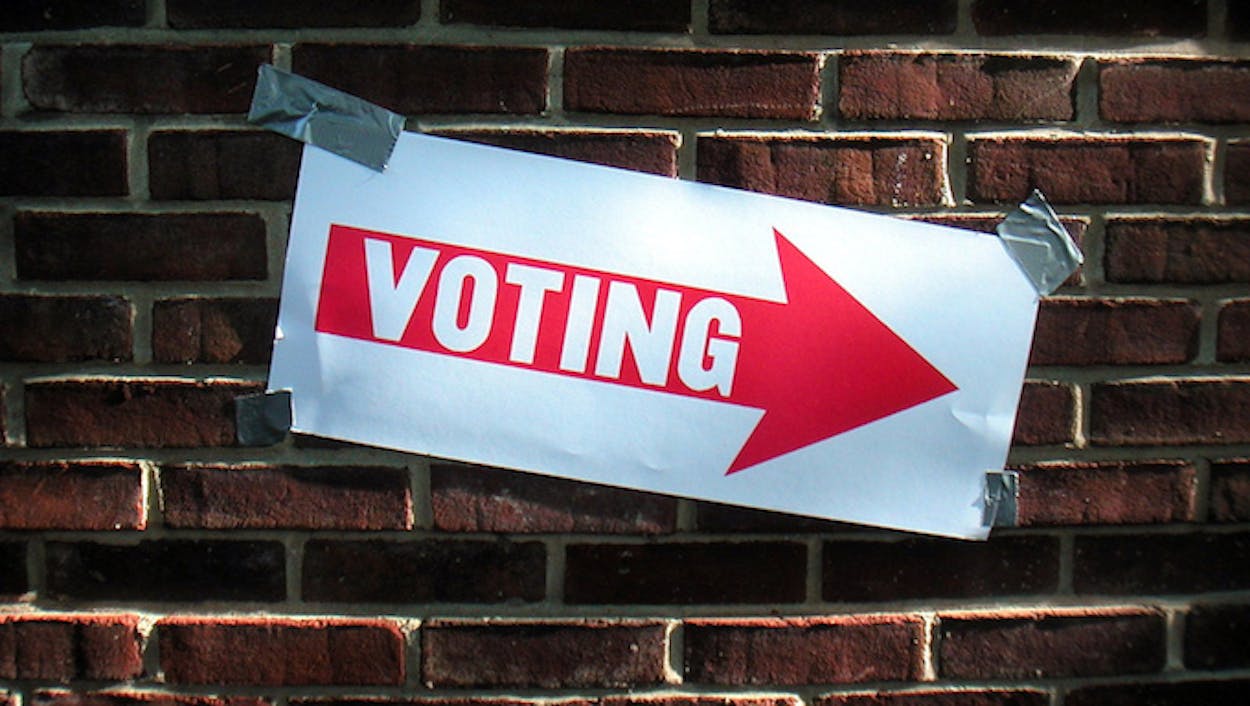Though BurkaBlog readers and commenters range across the ideological spectrum, they share a common interest in Texas politics. That being the case, they may not need the following reminder: today is the last day to register to vote if you want to take part in the November 3rd election.
Since this is an off year, the statewide ballot consists of seven constitutional amendments. The most significant of them, in my assessment, is Proposition 1, which asks Texans to approve the 84th Legislature’s property tax relief plan. Aman Batheja, at the Texas Tribune, notes that it is widely expected to succeed, despite the fact that the “relief” to homeowners will have a heavy cost for the state:
The expected savings on homeowners’ property tax bills, estimated at $126 on average, comes with a trade off: a permanent increase in state spending. Texas lawmakers will budget $600 million annually to cover the loss of revenue to school districts, which rely heavily on property taxes. That’s on top of about $8.4 billion already in the state budget each year to make up for three previous property tax relief measures implemented since 1997, according to the Legislative Budget Board.
“In many regards, we are creating a double taxation,” said state House Ways and Means Chairman Dennis Bonnen, R-Angleton. “Most Texans aren’t going to see a reduction in their property tax at home and they are now and forever going to pay $600 million a year for this homestead exemption to the state.”
This may sound like an abstruse discussion but, as the backlash over the Lege’s Medicaid cuts reminds us, the consequences are very real. The Texas Constitution already includes a balanced budget provision and a spending cap, and we continue to maintain one of the lowest per capita spending rates in the country. For the state to commit an additional $600 million or even $6 million in annual spending to property tax relief without having a plan for a corresponding revenue increase is effectively a guarantee that we will cut spending on core services, specifically public education or Medicaid. We may have tabled the issue for now, but if Prop 1 is approved, the Lege is going to have to deal with the results in 2017.
Also of note: there’s a special election in HD 118, where half a dozen candidates are vying to replace Joe Farias, who announced his retirement at the end of the Lege’s regular session. This is an unusually important seat, in my view, because HD 118 happens to be my home district, and I have a lot of family and friends there.
And regardless, there’s no downside to being registered to vote. In 2012 and 2014, Texas had one of the worst rates of voter participation in the country (we were second lowest in 2012 and third lowest in 2014, according to the U.S. Elections Project) and odd-year elections tend to be especially low-turnout affairs. Even if you don’t go to the polls, the prospect that you could may help encourage accountability among Texas’s elected officials.







